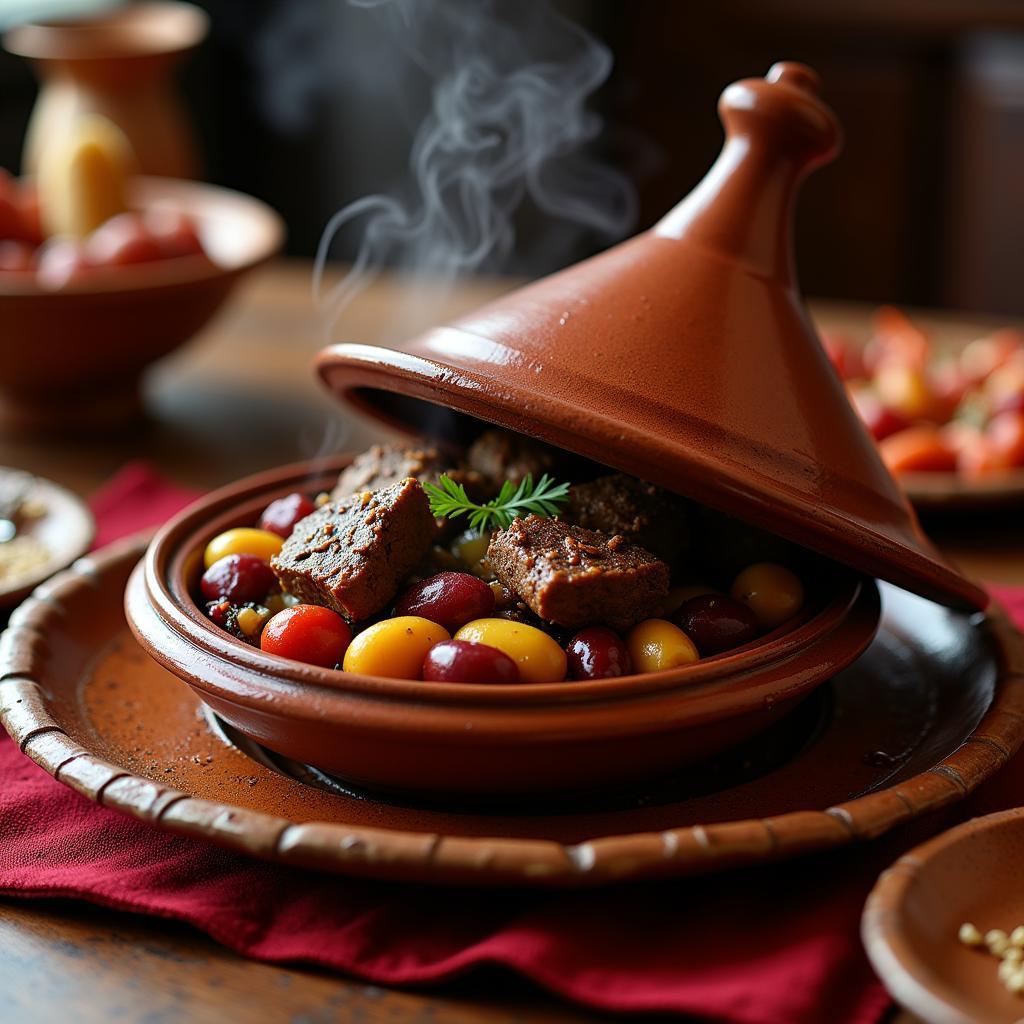Exploring the Rich Tapestry of African Cuisine: Your Guide to the African Food Network
The African Food Network isn’t just a single entity but a vibrant tapestry woven from the culinary traditions of over 50 countries. From the fragrant tagines of Morocco to the spicy suya of Nigeria, African food is as diverse as its people. This article dives deep into the heart of this culinary landscape, exploring its unique ingredients, cooking styles, and cultural significance.
Unveiling the Diversity of African Cuisine
Often mistakenly perceived as a monolith, African food is anything but. Each region boasts its own distinct flavors and culinary heritage. North Africa, influenced by Arabic and Mediterranean flavors, is known for its aromatic spices, slow-cooked tagines, and couscous dishes. West Africa explodes with fiery flavors, utilizing chilies, peanuts, and cassava in dishes like jollof rice and fufu.
Moving down to Central Africa, starchy staples like plantains and yams dominate, often accompanied by stews featuring fish or bushmeat. East Africa, with its coastal regions, offers a bounty of seafood, often incorporated into dishes like Swahili biryani and coconut-based curries. Southern Africa is renowned for its braai (barbecue) culture, as well as dishes like biltong (dried, cured meat) and bobotie (a spiced minced meat casserole).
More Than Just Food: The Cultural Significance of African Cuisine
Food in Africa is more than just sustenance; it’s a celebration of culture, tradition, and community. Meals are often communal affairs, with large platters shared amongst family and friends. Special occasions like weddings, births, and harvests are marked by elaborate feasts, each dish carrying symbolic meaning.
For example, in many East African cultures, offering guests a cup of spiced tea is a sign of hospitality and respect. Similarly, the preparation of fufu, a starchy side dish common in West Africa, is often a social activity, with women taking turns pounding the ingredients together.
Key Ingredients: A Journey Through African Flavors
African cuisine is characterized by a diverse range of ingredients, many of which are indigenous to the continent. Staple foods like sorghum, millet, and teff are ground into flours for porridge or used in fermented beverages. Root vegetables like yams, cassava, and sweet potatoes are boiled, fried, or mashed, providing a hearty base for many dishes.
Spices play a vital role in African cooking, lending depth and complexity to the flavors. From the warming heat of chilies and ginger to the earthy notes of cumin and coriander, African spices tantalize the taste buds. Other key ingredients include peanuts, often ground into a paste for sauces and stews, and palm oil, used for frying and adding richness to dishes.
 Aromatic African Spice Market
Aromatic African Spice Market
The Future of African Food: A Global Culinary Force
African cuisine is experiencing a global renaissance. Chefs worldwide are embracing African flavors and ingredients, putting a modern twist on traditional recipes. Food festivals dedicated to African cuisine are popping up around the globe, introducing food enthusiasts to the continent’s culinary delights.
This increased visibility is not only promoting cultural exchange but also fostering economic growth within Africa. As demand for African food products rises, so too do opportunities for farmers, food producers, and entrepreneurs across the continent.
Embark on Your Own Culinary Adventure
The African food network is an invitation to explore a world of diverse flavors, rich traditions, and warm hospitality. Whether you’re sampling street food in Marrakech or savoring a home-cooked meal in Dakar, be prepared for an unforgettable culinary journey.
“African food is about connection,” says Chef Abena, a renowned Ghanaian chef based in London. “It’s about bringing people together to share a meal and create memories.”
 African Family Sharing a Meal
African Family Sharing a Meal
Conclusion: Savoring the Flavors of Africa
The African food network is much more than just a collection of recipes. It’s a testament to the continent’s rich history, cultural diversity, and culinary ingenuity. From the bustling marketplaces to the intimate family kitchens, food plays a central role in African Life. So, embark on your own culinary adventure and discover the magic of African cuisine.
If you need any assistance, please contact us. Phone number: +255768904061, Email: kaka.mag@gmail.com Or visit us at: Mbarali DC Mawindi, Kangaga, Tanzania. Our customer service team is available 24/7.


